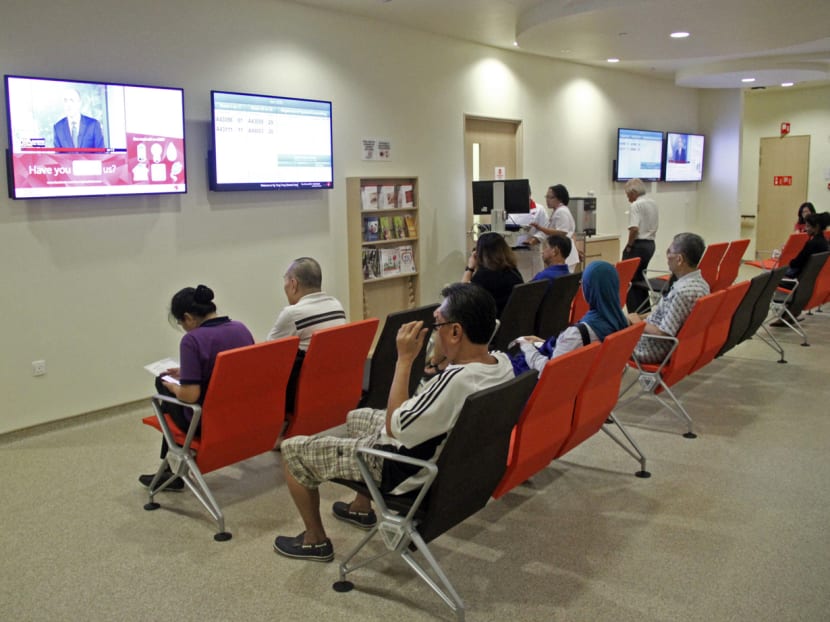Medical watchdog incurs net legal expenses of around S$800,000
SINGAPORE — In the wake of calls for greater transparency on costs of its legal proceedings, the Singapore Medical Council (SMC) has published for the first time its bill incurred in the last financial year.

TODAY file photo
SINGAPORE — In the wake of calls for greater transparency on costs of its legal proceedings, the Singapore Medical Council (SMC) has published for the first time its bill incurred in the last financial year.
It chalked up S$1.76 million in legal expenses for disciplinary proceedings from April last year to March this year, and recovered about S$960,000 of the sum, resulting in net expenses of nearly S$800,000.
The year before, the SMC’s net legal expenses for disciplinary proceedings amounted to about S$740,000 — after about S$1.53 million of S$2.27 million incurred was recovered.
The fees incurred for expert witnesses in the disciplinary proceedings amounted to about S$74,000 in the last financial year, higher than the S$65,000 incurred the year before.
The figures were found in the medical watchdog’s financial statements in its 2014 annual report published recently on its website. In previous years, the SMC did not include its financial statements in its annual report.
The move by the council, which regulates the medical profession here, comes after calls in recent years from the medical fraternity for greater disclosure. Singapore Medical Association (SMA) president Wong Tien Hua called the development a “welcome start”.
“This move reflects the principles of greater transparency and will help instil the public’s confidence in bodies like SMC,” said Dr Wong, whose association represents the majority of doctors here.
In 2013, the SMA had said the SMC should make public its annual accounts including the costs of administration and engaging counsel. The association also wanted the SMC to provide a breakdown of average costs per case for doctors who were found not guilty, and those who were. This was to “alleviate fears that the SMC’s legal costs are inconsistent across the outcomes”, the association had said.
Last July, a review committee appointed by the SMC to recommend better ways to manage disciplinary processes also urged it to publish the total annual costs spent for disciplinary proceedings. The SMC agreed that this would increase transparency and said at the time that it would see how best to “facilitate such reporting”.
The SMC told TODAY that it decided to publish its financial statements “inclusive of costs spent for disciplinary matters” after considering the review committee’s recommendations. “The SMC will publish the Financial Statements annually from now on,” said a spokesperson.
The regulator’s legal expenses have come under the spotlight with high-profile court cases such as that involving surgeon Susan Lim, who tried unsuccessfully to stop disciplinary proceedings against her for over-billing a Bruneian patient.
In Dr Lim’s case, the SMC’s claim of nearly S$1.4 million against her was slashed by the High Court, with a judge later ruling on a total bill of about S$825,000. Dr Lim’s husband is seeking to reverse a Law Society review committee’s dismissal of his complaints of “exorbitant” fees claimed by SMC’s lawyers, senior counsel Alvin Yeo and Ms Melanie Ho of WongPartnership. The matter is still before the High Court.
Health Minister Gan Kim Yong has said financial considerations should not hinder the SMC from carrying out its public duty to ensure that patients’ interests are protected. In a written parliamentary reply last November to Non-Constituency Member of Parliament Gerald Giam, Mr Gan also said the SMC would continue ensuring that the legal fees of law firms engaged are reasonable and commensurate with the work done.
Also revealed in the SMC’s 2014 financial statements: It was owed about S$420,000 from doctors who have been disciplined. The year before, the figure was even higher, at about S$655,000. This was noted by the SMC’s auditors Audit Alliance, who said that “a considerable amount of judgment is required in assessing the ultimate realisation of these receivables, including the current credit worthiness and the past collection history of disciplined practitioners”.
The auditors added: “If the financial condition of these disciplined practitioners were to deteriorate, resulting in an impairment of their ability to make payment, additional allowance (for bad and doubtful receivables) will be required.”






